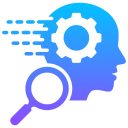This website uses cookies so that we can provide you with the best user experience possible. Cookie information is stored in your browser and performs functions such as recognising you when you return to our website and helping our team to understand which sections of the website you find most interesting and useful.
Transforming Healthcare with AI-Enhanced Personalization
The intersection of artificial intelligence and healthcare has introduced unprecedented advancements, fundamentally altering how patients experience care. AI-enhanced personalization is propelling the industry forward by delivering tailored solutions that address the unique needs of individuals. This evolution moves healthcare away from a generic, one-size-fits-all model toward identifying and treating the true drivers of patient wellness. Through responsive algorithms, predictive analytics, and deep learning, healthcare providers can now optimize treatments, streamline decision-making, and empower patients to take control of their health outcomes. The following sections explore how this transformation is taking shape across the continuum of care.

Personalized Diagnosis and Risk Assessment
AI-Driven Diagnostic Insights



